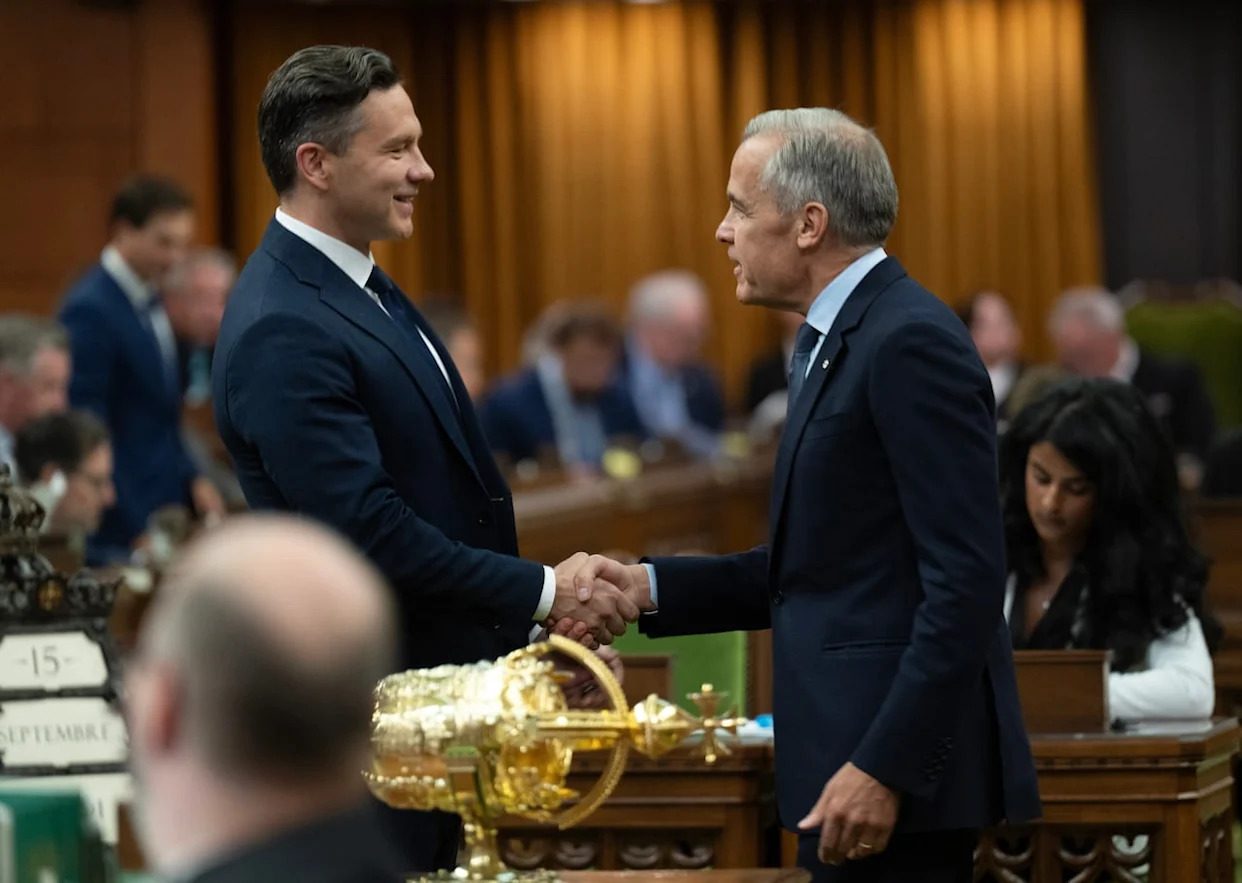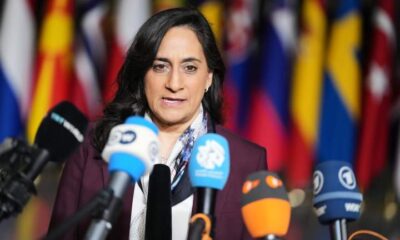Top Stories
Urgent Vote Strategies Unfold as Canada Faces Budget Showdown

UPDATE: Tensions escalate in Canadian politics as MPs return to Parliament Hill this week, facing urgent decisions that could reshape the government’s future. With a budget vote scheduled for early November, the stakes are higher than ever for Prime Minister Mark Carney and the Liberal Party.
The recent election resulted in a slim Liberal minority government, marking the sixth such instance in two decades. To pass crucial legislation, cooperation among parties is essential. The spring session witnessed some collaboration, but the continuation of this alliance remains uncertain.
The most pressing issue on the agenda is the budget, which is a confidence vote. Failure to pass it could trigger another election, plunging Canada back to the polls. Conservative Leader Pierre Poilievre has publicly criticized government spending and indicated he will decide his vote based on the budget details.
In stark contrast, Prime Minister Carney has acknowledged that the budget deficit will be larger than last year, meaning he will likely require support from at least one opposition party to secure passage. Here’s how the voting dynamics are shaping up:
Potential Voting Outcomes
If Liberals and Conservatives Collaborate: The Liberals and Conservatives hold a combined 312 votes, which would easily ensure legislation passes. Their previous collaboration on major projects legislation demonstrated their ability to swiftly sideline other parties. For instance, the Liberals’ significant projects bill was approved in under a month with Conservative backing.
If Bloc or NDP Support Liberals: The Liberals could also turn to the Bloc Québécois or the NDP for support. Together, the Liberals and Bloc could command 190 seats, outvoting the Conservatives, NDP, and Greens. Bloc Leader Yves-François Blanchet has expressed willingness to collaborate if it benefits Quebec, while NDP interim leader Don Davies has voiced concerns about budget cuts.
Could Opposition Parties Unite? If the Conservatives, Bloc, and NDP unite, they could collectively wield 173 votes, enough to diminish the Liberals’ influence. However, due to significant ideological differences, reaching a consensus on legislation remains challenging.
If Bloc or NDP Abstain: Abstaining is also an option. If the Bloc chooses not to vote, the Liberals could still prevail with 168 votes against the remaining opposition. However, if the NDP abstains, the vote margin narrows significantly, making every seat crucial.
The potential resignation of key Liberal MPs, such as former cabinet minister Chrystia Freeland, could further complicate matters. If these departures occur before a by-election, the Liberals may face a critical seat shortage, impacting their voting power.
What’s Next?
As the budget vote approaches, the political landscape remains fluid. MPs are urged to prepare for a range of voting scenarios, including potential free votes where party discipline loosens. Such situations could lead to unexpected outcomes, depending on individual MPs’ choices.
With the clock ticking down to the budget vote, all eyes are on Parliament Hill. The outcome will not only determine the government’s stability but also set the course for Canada’s economic future. Stay tuned for real-time updates as this story develops.
Share your thoughts on how you think the parties will align in this critical vote!
-

 Politics4 weeks ago
Politics4 weeks agoSecwepemc First Nation Seeks Aboriginal Title Over Kamloops Area
-

 World5 months ago
World5 months agoScientists Unearth Ancient Antarctic Ice to Unlock Climate Secrets
-

 Entertainment5 months ago
Entertainment5 months agoTrump and McCormick to Announce $70 Billion Energy Investments
-

 Science5 months ago
Science5 months agoFour Astronauts Return to Earth After International Space Station Mission
-

 Lifestyle5 months ago
Lifestyle5 months agoTransLink Launches Food Truck Program to Boost Revenue in Vancouver
-

 Technology3 months ago
Technology3 months agoApple Notes Enhances Functionality with Markdown Support in macOS 26
-

 Lifestyle3 months ago
Lifestyle3 months agoManitoba’s Burger Champion Shines Again Amid Dining Innovations
-

 Top Stories2 months ago
Top Stories2 months agoUrgent Update: Fatal Crash on Highway 99 Claims Life of Pitt Meadows Man
-

 Politics4 months ago
Politics4 months agoUkrainian Tennis Star Elina Svitolina Faces Death Threats Online
-

 Sports5 months ago
Sports5 months agoSearch Underway for Missing Hunter Amid Hokkaido Bear Emergency
-

 Politics5 months ago
Politics5 months agoCarney Engages First Nations Leaders at Development Law Summit
-

 Technology5 months ago
Technology5 months agoFrosthaven Launches Early Access on July 31, 2025




















